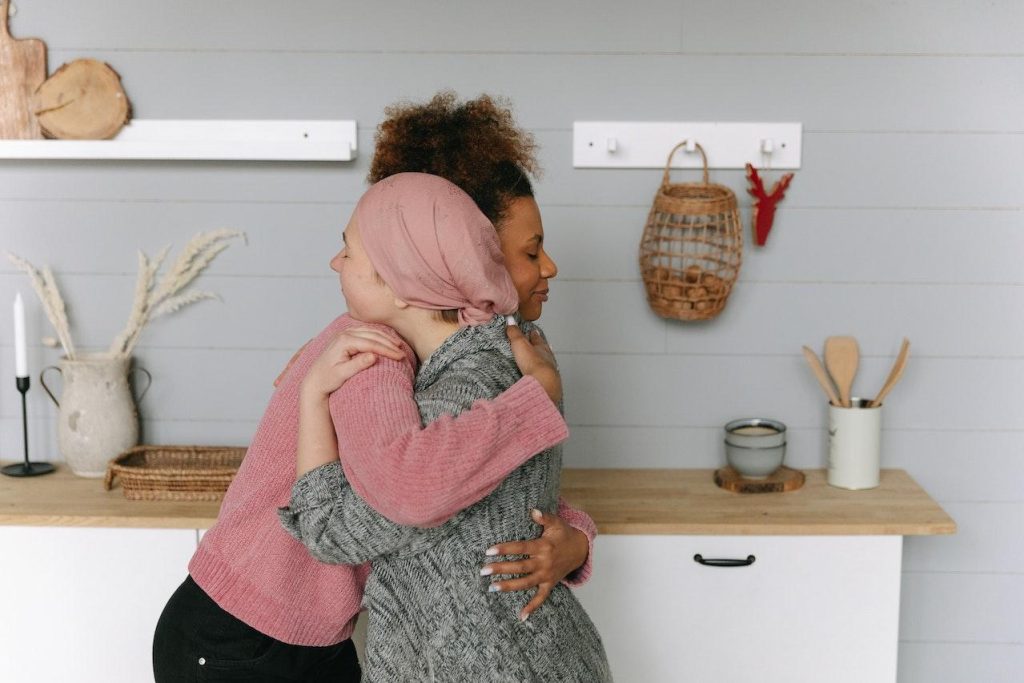It may be tough to find the ways to show condolences and convey our sympathies when someone we care about is going through a difficult time or has suffered a loss. The skill of delivering true condolences, on the other hand, goes beyond simple words; it requires genuine empathy, understanding, and a readiness to bring consolation. There are many ways to express condolences in this complicated dance of human emotions, from sending a heartfelt note or a bouquet to giving a listening ear or extending a helpful hand. We may walk the delicate route of comforting people and creating genuine connections that offer solace and support through their worst moments by entering into the domain of compassionate gestures. Let us go through some of the top ways of showing condolences.
Offer your sincere verbal condolences
When someone suffers a loss or is in a tough position, it is crucial to convey your support and understanding via honest vocal condolences. You may bring comfort and let the recipient know you care by expressing your honest concern.
Kind words and sincere sympathies recognize their suffering while also assuring them that they are not alone on their journey. It demonstrates your readiness to listen, provide a hand, or simply be a source of comfort during your time of need. These expressions of sympathy serve as a reminder that compassion and support are critical in times of grief.
Listen actively
One of the most important methods to offer condolences is to actively listen to the individual and provide a caring place for them to share their sentiments and emotions. Being a compassionate listener is paying complete attention to them and creating a secure environment in which they may freely communicate their thoughts and experiences.
Instead of interrupting or forcing your own beliefs, concentrate on their words and nonverbal signs. Demonstrate empathy by noticing their suffering and validating their emotions. You establish an atmosphere of trust and support by delivering this attentive and empathetic presence, allowing the individual to freely express themselves and find consolation in expressing their suffering.
Send a handwritten note
A handwritten sympathy note is a heartfelt and unique way to express condolences and provide support. Taking the time to write a thoughtful note shows that you genuinely care about the individual who is in grief. Express your heartfelt condolences in your message, acknowledging their loss and the suffering they are feeling.
Share good recollections or attributes you appreciated about the deceased, highlighting their positive influence on others. Let them know you are there for them, providing support and a listening ear anytime they require it. A handwritten message conveys closeness and honesty, assuring them that they are not alone in their grief.
Attend the funeral or memorial service
Attending a loved one’s funeral or memorial ceremony is a powerful way to express condolences and provide support to the bereaved family. Being physically there shows your support and desire to share in their grief. Your presence alone can bring comfort and reassurance at this trying time.
Attending the funeral allows you to pay your respects to the departed and commemorate their memory, as well as express support to bereaved family members and friends. It is a chance to provide a caring hug, a listening ear, and a shoulder to cry on. Your presence says a lot and shows them that they are not alone in their pain.

Bring a thoughtful gift
Bringing a thoughtful gift is a heartfelt way to express condolences and demonstrate your concern. Consider sending an arrangement of sympathy flowers, which signify beauty and may provide a sense of consolation during a difficult time.
A sympathy card with genuine condolences may also bring peace and a concrete reminder of your support. If you know what the individual likes or is interested in, a little gesture like a book, a relaxing candle, or a personalized item might show your concern and compassion. These thoughtful presents provide concrete demonstrations of your condolences, reminding them of your presence and concern throughout their healing process.
Offer practical help
Offering practical assistance is a valuable way to express condolences and be physically there for someone. By asking if there is anything particular you can do to help, you show your willingness to lighten their load during a tough moment. Offering to conduct errands, such as grocery shopping or performing important activities, can bring much-needed relief to the bereaved individual or family.
Cooking meals or organizing a food train helps guarantee that they are fed and cared for when they do not have the energy to do so. Furthermore, volunteering to provide childcare or aid with domestic duties might help relieve their burdens and allow them to relax and recuperate. You demonstrate your real support and readiness to step in and make their lives a bit simpler during their time of need by giving practical assistance.
Share fond memories
Sharing pleasant recollections is a touching way to express condolences and respect the life of the deceased. Take advantage of the chance to reflect on the significant events and experiences you shared with them. Remember their distinct characteristics, accomplishments, and the great influence they made on others.
Tell anecdotes about their character, generosity, and sense of humor. These tales and reminiscences not only commemorate their life but also provide solace to people who are bereaved by reminding them of the pleasure and love that the individual brought into the world. Sharing these treasured memories aids in the healing process and creates a space for introspection, laughter, and the celebration of a life well-lived.
Respect their grieving process
When expressing condolences, it is critical to respect the grieving process since everyone grieves in their unique way. It is critical to recognize that sorrow is a very personal process with no one-size-fits-all solution.
Recognize that different people express their emotions in various ways and that healing times might vary. Allow them the space and time they need to process their grief with tolerance and empathy.
Pay attention to their needs and offer assistance without judgment or pressure. A listening ear or a reassuring presence may make a tremendous impact. You express understanding and compassion by respecting their grief process and establishing an environment that supports healing and growth at their speed.

Keep in touch
Checking in on the individual regularly, even after the initial shock of the loss has worn off, is an effective method to show continued support and concern. Grief is a complicated and dynamic process, and the healing path continues long after the first shock has passed.
By regularly reaching out, you demonstrate that their well-being and sentiments are important to you. Regular check-ins can bring reassurance and comfort, letting them know they are not forgotten or alone in their loss. It’s an opportunity to provide a sympathetic ear, offer a shoulder to cry on, or just create a safe environment for them to express their feelings and views. You demonstrate your dedication to being by their side throughout their healing by continuing to show your support.
Attend support groups together
Attending support groups together is a meaningful way to show condolences and provide ongoing support to someone who is grieving. By offering to accompany them to grief support groups or therapy sessions, you demonstrate your commitment to their healing journey. Attending these sessions together not only shows solidarity but also allows them to feel more comfortable and supported during a potentially challenging and vulnerable experience.
It also allows them to interact with other people who are going through comparable situations and can provide vital insights and coping skills. By participating in such circumstances, you support the significance of obtaining professional assistance and building an atmosphere of compassion, acceptance, and recovery.
Help with practical arrangements
Helping with funeral plans, paperwork, or other essential duties is a practical and sympathetic way to express condolences and give much-needed assistance to the bereaved. Dealing with practical issues may be difficult and burdensome for those who are experiencing emotional distress.
Offering to help them with these chores demonstrates your concern for their well-being. Helping with funeral preparations, contacting essential individuals, or acquiring necessary documentation might reduce their stress.
By stepping in to help them at this difficult time, you provide them the opportunity to focus on processing their feelings and grief without the extra load of administrative responsibilities. Your desire to assist tells volumes about your concern for their well-being and gives a significant source of comfort and relaxation.
Respect their privacy
When expressing condolences, it is critical to respect their privacy since it respects the need for personal space throughout the mourning process. Recognize that individuals may require time alone to absorb their feelings and dwell on their loss. Allow them to retreat when required without judgment or interference.
It’s also crucial to make it apparent that you’re there for them anytime they’re ready to chat or seek help. Assure them that your door is always open and that you are there to listen, give a reassuring presence, or assist them anytime they seek out. You exhibit your understanding and regard for their needs while also giving a source of support when they are ready to draw on it by finding a balance between respecting their privacy and keeping an open invitation for connection.
Finally, expressing condolences requires a diverse strategy that includes a variety of gestures and activities. Offering honest vocal condolences and attending funeral services, as well as sending meaningful letters and sharing good memories, all indicate empathy, support, and care for individuals who are suffering.
Furthermore, offering practical assistance, respecting their grief process, and checking in regularly demonstrate continued support and compassion. It is critical to preserve their privacy while yet indicating that you are there anytime they require you. We may create a loving atmosphere that respects the depth of their loss, gives consolation, and promotes the need for human connection during times of mourning by combining these aspects.
Apart from that, if you are interested to know about 5 Important Changes to Make in Your Life then visit our Lifestyle category.

















